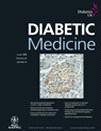Borowiec M, Fendler W, Dusatkova P, Antosik K, Pruhova S, Cinek O, Mysliwiec M, Jarosz-Chobot P, Malecki MT, Mlynarski W. Diabet Med. 2012 Nov;29(11):1465–9. doi: 10.1111/j.1464-5491.2012.03671.x. IF: 2.902

Department of Paediatrics
Abstract
AIMS: Genetic variation at the rs560887 locus of the glucose-6-phosphatase, catalytic 2 gene (G6PC2) is known to affect regulation of fasting glycaemia. We determined the rs560887 genotype of patients with monogenic diabetes and glucokinase gene mutations (GCK-MODY) and correlated the genotypes with HbA(1c) levels. METHODS: Patients from families with GCK-MODY were recruited from two large cohorts from Poland (n = 128) and the Czech Republic (n = 154). Genotypes at the rs560887 polymorphic site in G6PC2 were examined using real-time quantitative polymerase chain reaction. The effect of rs560887 genotype on age at diagnosis of GCK-MODY and initial HbA(1c) levels were evaluated separately within both cohorts. Following that, a meta-analysis of rs560887 genotype-HbA(1c) associations of both Polish and Czech cohorts was performed to confirm homogeneity of findings and validate cohort-specific results. RESULTS: GG homozygosity at rs560887 was associated with marginally elevated HbA(1c) levels (P = 0.07 in both cohorts). The effects observed in both groups were very homogeneous (Q = 0.18; P = 0.68). Meta-analysis showed that GG homozygosity at rs560887 was associated with mean HbA(1c) levels higher by 2.4 mmol/mol (0.24%), 95% CI 0.5–4.4 mmol/mol (0.05–0.44%) than in individuals with other genotypes. Additionally, meta-analysis of both cohorts showed that GG homozygous individuals had higher odds of reaching the 48 mmol/mol (6.5%) diagnostic threshold of diabetes; (odds ratio 1.90; 95% CI 1.07–3.36; P = 0.03). No such effects were observed for age at diagnosis of diabetes. CONCLUSIONS: Variation at the rs560887 locus of G6PC2 is associated with worse glycated haemoglobin levels in individuals with GCK mutations; GG homozygotes are more likely to meet diagnostic criteria for diabetes based on HbA(1c) level.
-Michaela Kotrová-